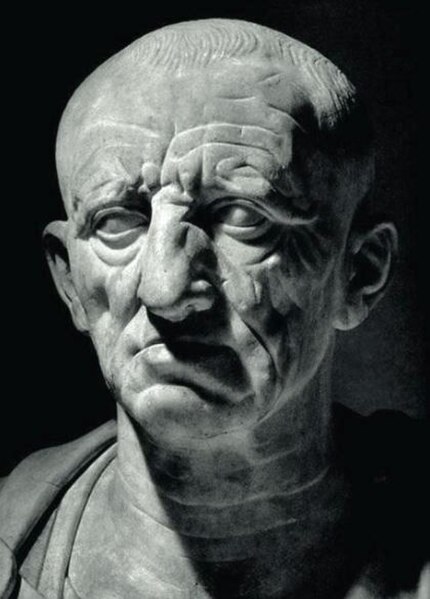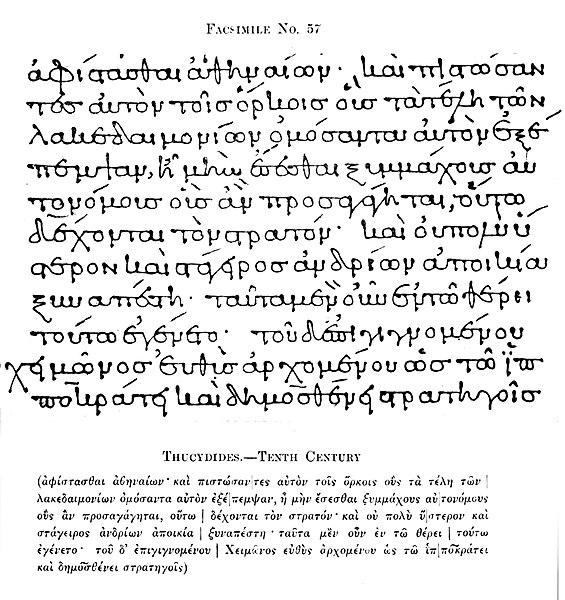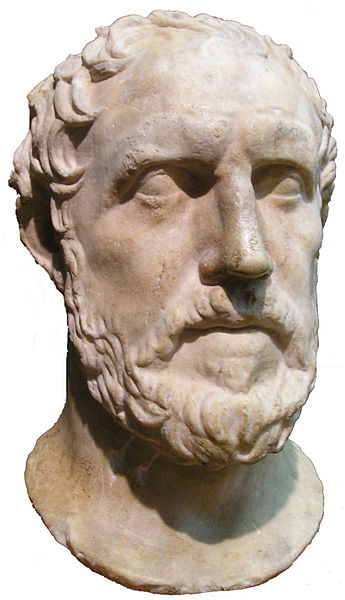Marcus Porcius Cato, also known as Cato the Censor, the Elder and the Wise, was a Roman soldier, senator, and historian known for his conservatism and opposition to Hellenization. He was the first to write history in Latin with his Origines, a now fragmentary work on the history of Rome. His work De agri cultura, a rambling work on agriculture, farming, rituals, and recipes, is the oldest extant prose written in the Latin language. His epithet "Elder" distinguishes him from his great-grandson Cato the Younger, who opposed Julius Caesar.
The Patrician Torlonia bust thought to be of Cato the Elder
The theatre at Tusculum
Hannibal and his men crossing the Alps
Part of the Roman Forum. The arch was erected by Septimius Severus.
Historiography is the study of the methods used by historians in developing history as an academic discipline, and by extension, the term historiography is any body of historical work on a particular subject. The historiography of a specific topic covers how historians have studied that topic by using particular sources, techniques of research, and theoretical approaches to the interpretation of documentary sources. Scholars discuss historiography by topic — the historiography of the United Kingdom, of WWII, of the pre-Columbian Americas, of early Islam, and of China — and different approaches to the work and the genres of history, such as political history and social history. Beginning in the nineteenth century, the development of academic history produced a great corpus of historiographic literature. The extent to which historians are influenced by their own groups and loyalties — such as to their nation state — remains a debated question.

The Allegory On the Writing of History shows Truth watching the historian write history, while advised by Wisdom. (Jacob de Wit,1754)
Reproduction of part of a tenth-century copy of Thucydides's History of the Peloponnesian War
Bust of Thucydides, Hellenistic copy of a 4th-century BC work
The Roman bust of historian Cato the Elder







